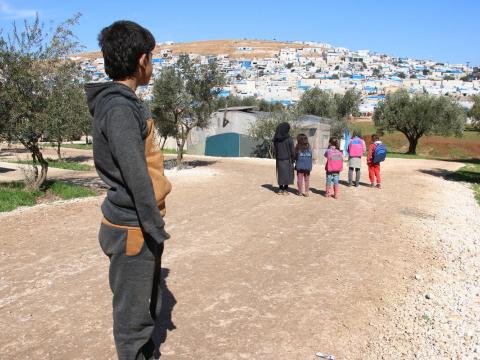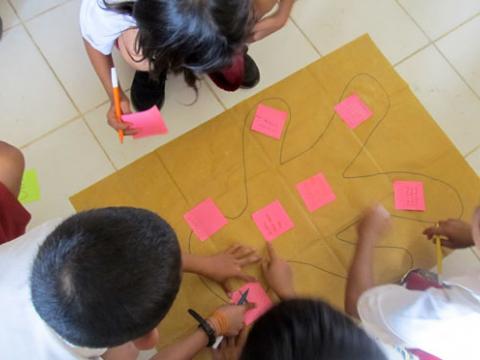
Sometimes, it takes a grenade
By Matt Scott
Right after the rocket-propelled grenade flew over the hotel, I went outside to take a look. Young and foolish, I walked out into deserted streets to find out what was happening. A few hours earlier, bustling street vendors had lined the sidewalks of Phnom Penh, the capital of Cambodia. Now, in the middle of a sunny Saturday, every woman, man, and child had disappeared from the streets.
Over the next few days, mortar shells rained down on the city. Bullets flew in the streets. People lay on the floor of their homes. A colleague risked his life to retrieve me from the hotel and sheltered me with his family.
This particular armed conflict lasted only a few days, and then the fighting stopped. Hundreds of people were killed, most of them soldiers. In an instant, on the fifth of July 1997, life changed for hundreds of thousands of people. This brief glimpse of war didn’t injure me, but in an instant, it changed me.
I’ve dedicated myself to addressing the ways violent conflict affects children ever since. I was part of the campaign that led to the global treaty banning landmines in December 1997. I travelled to conflict hotspots throughout the 2000s, talking with local leaders and sharing those perspectives with ambassadors in Brussels, Geneva, New York, and Washington. I directed World Vision’s peacebuilding efforts globally and in December 2015 I was part of a small group of activists celebrating a new UN Security Council Resolution we had lobbied for, to include young people in peace processes. My restlessness to see real and lasting change found a home in World Vision; we are a global family dedicated to ending violence against children.
We’ve joined with the efforts of millions of others over the years dedicated to the same goal. This battle involves all of us, because it needs all of us. Global levels of violence have been rising steadily over the last decade, and COVID-19 has literally brought that violence home. In 2021 we will observe the tenth year of war in Syria. Severe acute malnutrition at an early age – a less obvious effect of wars – can cause lifelong physical and mental damage. Over 50 million children under five around the world are acutely malnourished, and the world is not on track to achieve nutrition targets, made more difficult because of COVID-19. These children are concentrated in fragile contexts. Conflict and war are the biggest contributors to hunger.
As a 25-year-old waking up on a sunny morning in Phnom Penh in July 1997, I knew little about how violently and suddenly life can change. Since then, I have had the privilege of learning from and being part of multiple global movements that made the world a better place. By tackling one problem at a time. Ending violence against children seems like an impossible aim, and it doesn't happen in an instant. But by God's grace, dedicated and passionate people working together over time have made great strides in reducing violence against children.
Though the path ahead is difficult and filled with obstacles, my hope comes from my Christian faith, and the great global coalition of those devoted to ending violence against children. My prayer is that 2021 marks the beginning of a new era of action to end violence for children. And I hope you can be a part of it.
Matt Scott is World Vision’s Fragile Contexts Resource Development Director. Follow Matt on Twitter @matthewjoscott
